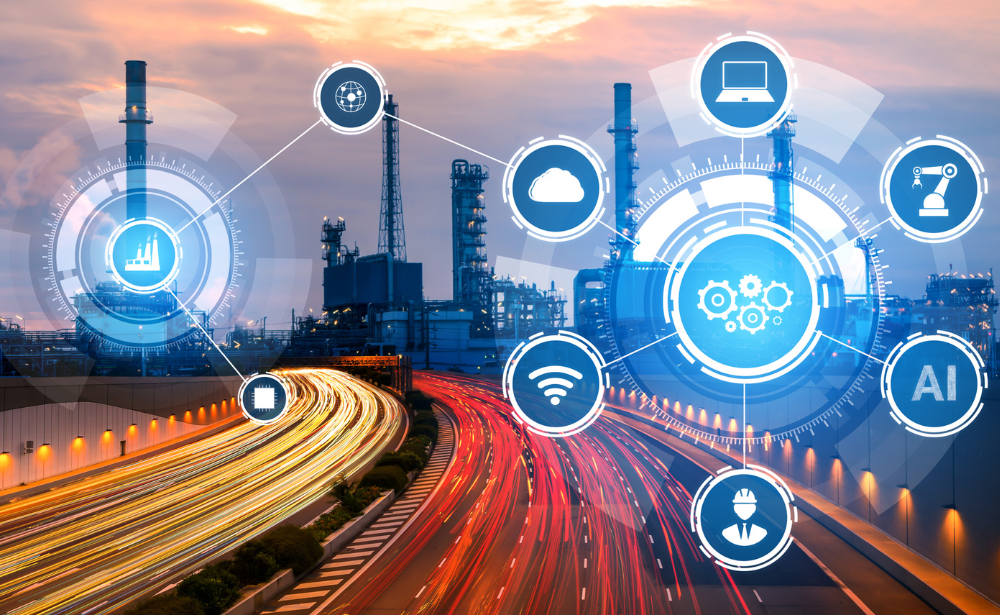Electrical engineering profoundly impacts the world, playing a crucial role in various aspects of modern life and contributing to a more sustainable future. The period from around 1760 to about 1820-1840 marked the onset of the Industrial Revolution, during which manufacturing processes adopted water and steam power. This era, often termed the First Industrial Revolution, saw significant contributions from Michael Faraday to the understanding of electromagnetism.
Following the initial Industrial Revolution, between 1870 and 1914, substantial technological advancements, including the introduction of electricity, gas, and oil, revolutionised industries. Notably, superior electrical technology emerged, enabling greater production and sophistication in machinery. The subsequent periods are known as the Second and Third Industrial Revolutions, with the latter characterised by the widespread adoption of digital technology, including electronic systems, programmable logic controllers (PLCs), IT systems, and robotics. The early developments of Industry 4.0 began in the 1990s, gaining momentum from 2011 onwards, ushering in an era of autonomous production facilities, storage systems, and smart machines.
Undoubtedly, the Fourth Industrial Revolution has significantly impacted electrical engineering across three key areas: the medical field, consumer products, and the industrial sector. Let’s delve deeper into these areas:
Medical Field:
-
- Medical Devices and Imaging: Electrical engineers have played a crucial role in advancing medical technology by designing and developing essential equipment like MRI machines, CT scanners, and ultrasound devices, relying heavily on intricate electrical and electronic components for accurate imaging and patient monitoring.
- Telemedicine: The revolution has fostered the growth of telemedicine and remote patient monitoring, with electrical engineers creating hardware and software for telehealth solutions, including medical sensors, data transmission systems, and secure communication platforms.
- Biomedical Instrumentation: In this domain, electrical engineers design and maintain critical instruments such as ECG machines, infusion pumps, and ventilators, essential for patient care and monitoring.
- Robotic Surgery: A significant innovation, robotic surgery offers precision, flexibility, and control in minimally invasive procedures, augmenting human surgeons without replacing them.

Consumer Products:
-
- Smart Home Technology: Electrical engineers have facilitated the proliferation of smart home devices like thermostats, lighting systems, voice-controlled assistants, and security systems, designing user-friendly and efficient electronics and connectivity solutions.
- Consumer Electronics: Central to the development of smartphones, tablets, and wearable devices, electrical engineers work on miniaturising components, improving battery technology, and enhancing wireless connectivity.
- Entertainment Systems: In this sector, electrical engineers contribute to high-definition televisions, gaming consoles, audio systems, and streaming platforms, delivering immersive entertainment experiences.
- Wearable Tech: Constant innovation in wearable technology demands agility from the industry to meet consumer demand and stay ahead of trends.
Industrial Sector:
-
- Automation and Robotics: Significant advancements in industrial automation and robotics have led to more efficient manufacturing processes, with electrical engineers designing control systems for robots, CNC machines, and assembly lines.
- IoT in Industry: The industrial sector has embraced IoT for remote monitoring, predictive maintenance, and real-time data analysis, with electrical engineers creating sensors and communication infrastructure for factories, warehouses, and supply chains.
- Energy Management and Sustainability: Electrical engineers play a pivotal role in optimising energy consumption, working on energy-efficient motors, lighting, and power distribution systems to reduce operational costs and environmental impact.
- Electric Vehicles: Despite years of production, electric vehicles continue to rise in consumer popularity, with electrical engineers driving advancements in charging infrastructure and propulsion systems.
In each of these areas, electrical engineers have been catalysts for progress, harnessing technology to drive innovation and improve quality of life. As we navigate the Fourth Industrial Revolution, and anticipate Industry 5.0, with humans working alongside advanced technology and AI-powered robots, electrical engineers remain integral in shaping the future.

About the Author:
Ts. VINUKUMAR LUCKOSE
Senior Lecturer, Electrical & Electronic Engineering, Faculty of Engineering, Built Environment & Information Technology, SEGi University
Ts. Vinukumar Luckose joined SEGi University in November 2019. He earned his Bachelor of Electrical and Electronics Engineering (Hons) from Manonmaniam Sundaranar University, India, in 2003, followed by a Master of Engineering (M.E) in Power Electronics & Drives from Anna University, Chennai, India, in 2005. Currently, he is pursuing a Ph.D. in Electrical and Electronics Engineering at Universiti Teknologi PETRONAS (UTP), with research interests in renewable energy, Power Electronics for drives, Electrical Vehicle, and Electric vehicle charging systems. With over 18 years of teaching experience in academic settings and expertise in tutoring various Electrical and Electronics subjects, Ts. Vinukumar Luckose also brings practical industry experience, having worked for 6 months as a Service Engineer at Johnson Lift Ltd. Presently, he serves as the Head of Department in the Electrical and Electronics Engineering department at SEGI University & Colleges. His professional affiliations include membership in various esteemed organizations such as IEEE, Institution of Engineers Malaysia (IEM), Board of Engineers Malaysia (BEM), Malaysian Board of Technologist (MBOT), Institute of Engineering Technology, and Associate ASEAN Engineering Technologist.

